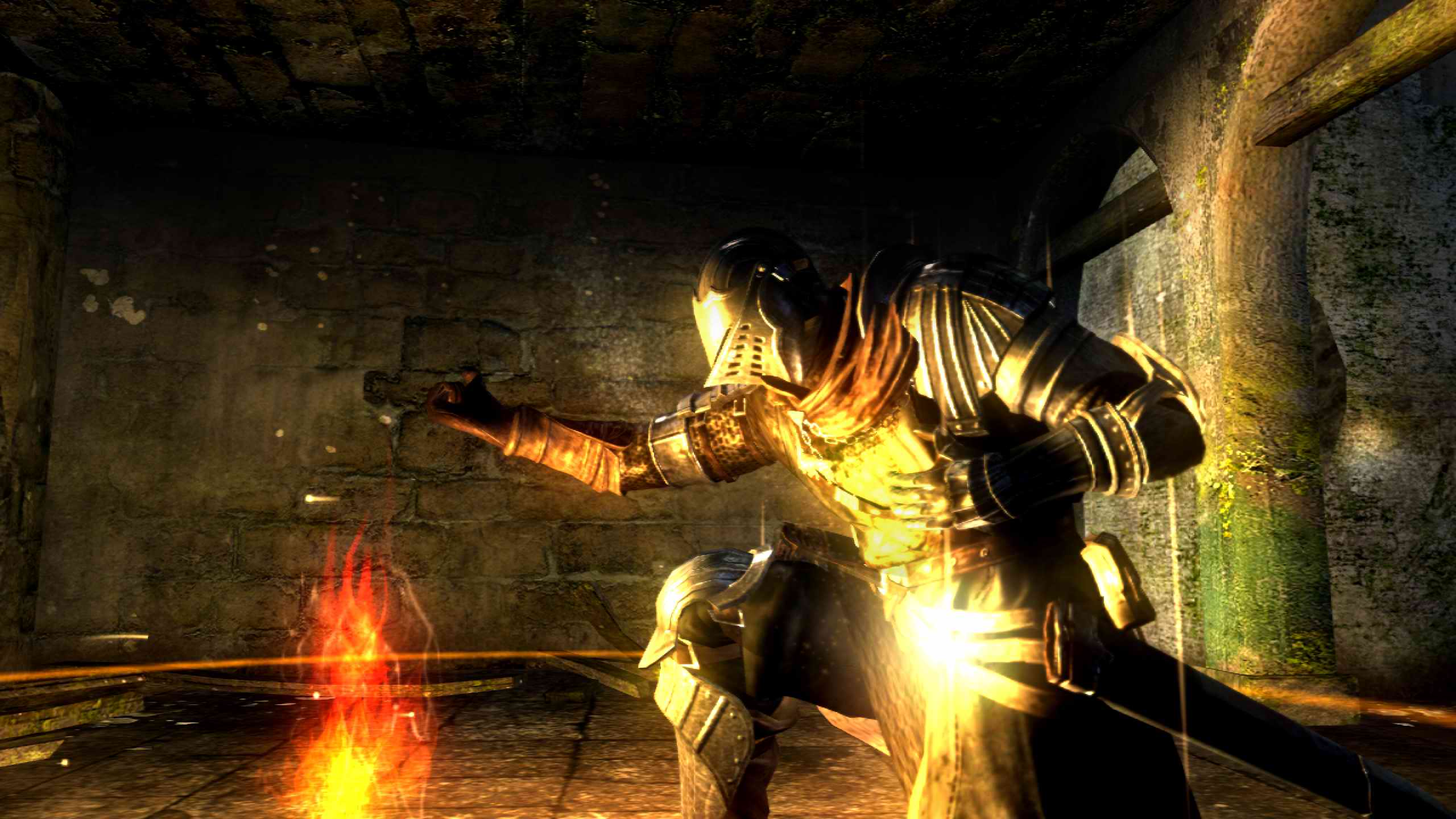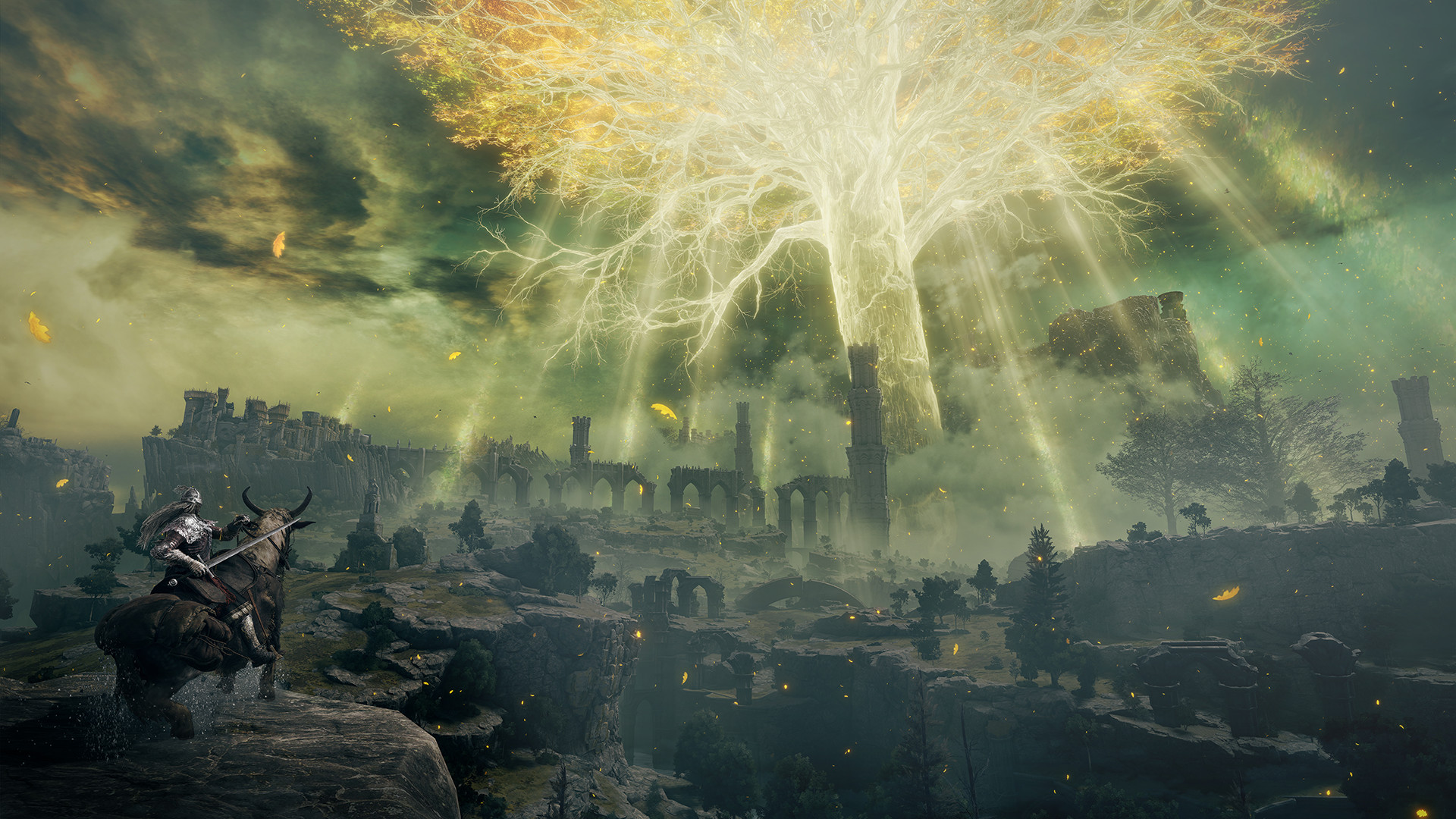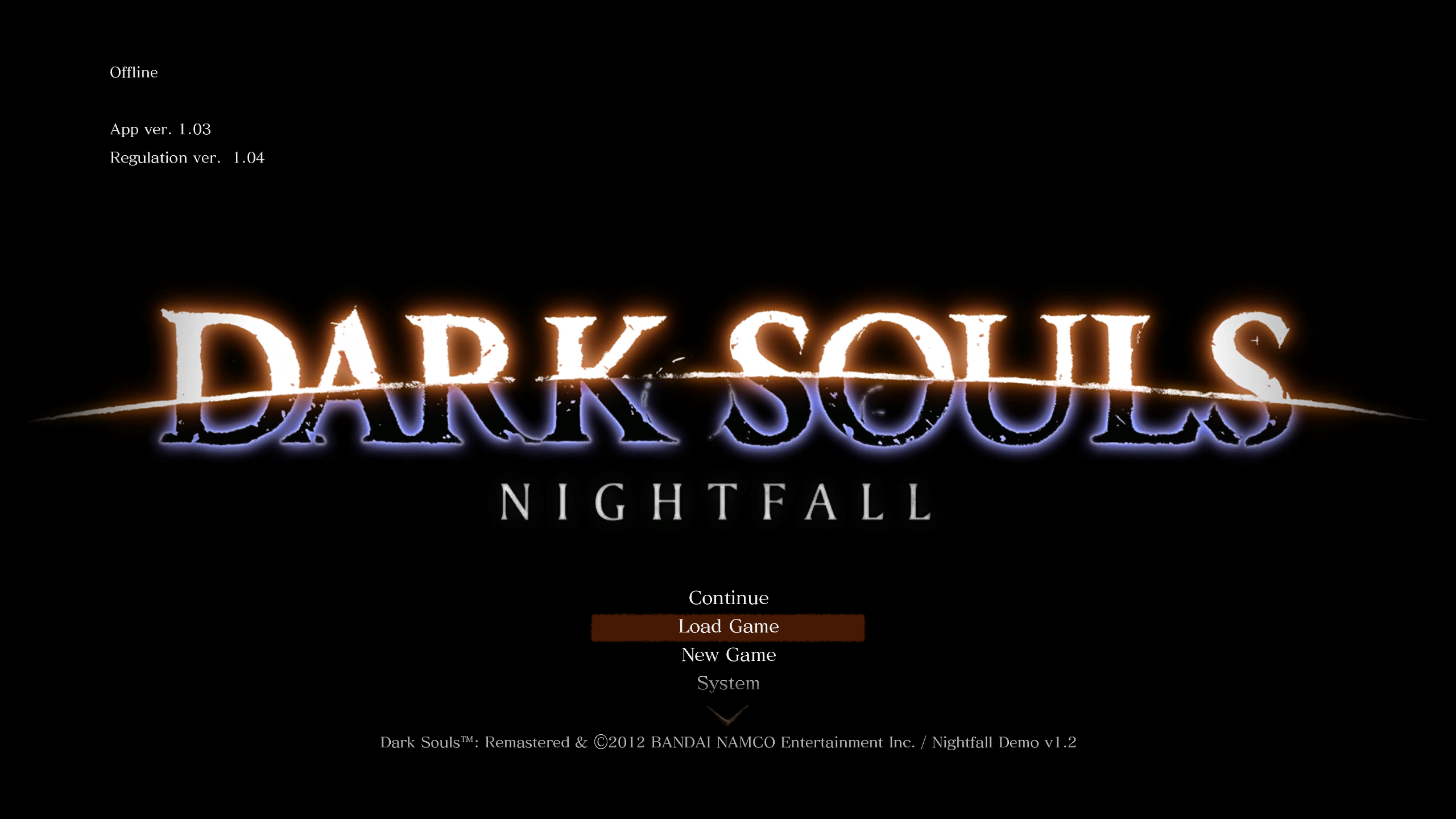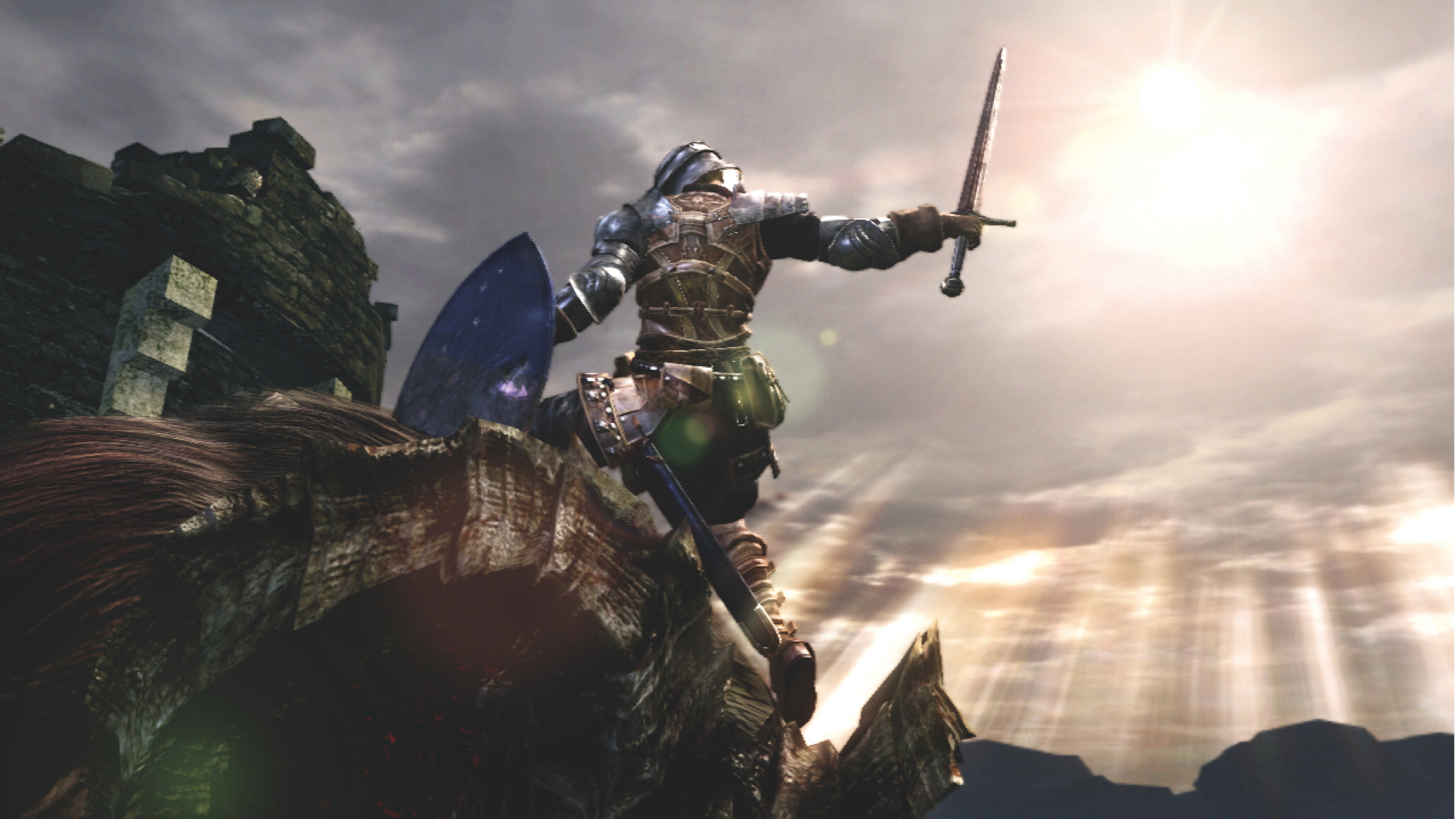After 250 hours with Elden Ring, I now fully appreciate the masterpiece of Dark Souls
Not that Dark Souls is short of praise at this point, but I can't stop dreaming of Lordran in the Lands Between

I've now clocked 250 hours with Elden Ring. Two-hundred and fifty hours. And while I realize that's small change for some folk – there are some players out there who've spent several thousand hours roaming the Lands Between from pillar to post at this point – the fact that FromSoftware's five-star masterpiece only landed in February, plus the fact that I have two small children whose bedtime routines can prove more challenging than a no-hit bout with Malenia in New Game+, the very fact that I've clocked anywhere near two-and-a-half centuries filling the Omenkiller Boots of the Tarnished is, to me, impressive. So impressive, in fact, that the only other games I think I've come close to that number with in recent years are Football Manager, GTA Online, and, across its myriad platform incarnations and enhanced editions over the last decade, Dark Souls.
Dark Souls, of course, paved the way for Elden Ring. Despite FromSoftware's busy back catalog pre-Dark Souls, which included 2009's Demon's Souls, it was the Lordran-set ARPG that put the developer on the map – with it eventually inspiring a whole genre unto itself. The first identified 'Soulslike' has more than earned the reams of praise it's received over the last 11 years – it was even crowned the Ultimate Game of All Time at last year's Golden Joystick Awards, after which I explained why – but it's only after playing something as big, ambitious and involved as Elden Ring for quite so long (I'm not even halfway through my first NG+ run) that I've garnered a whole new level of appreciation for Dark Souls – something I didn't think possible before Elden Ring's arrival earlier this year.
Brave Souls


As Dark Souls turns 10, its most ambitious community project reimagines everything in Lordran
Elden Ring is massive. From Limgrave to Liurnia, Leyndell to the Lake of Rot, the Lands Between is the most sophisticated and seamless landscape FromSoftware has ever created. Even with the help of your trusty steed Torrent, fast travel, the ability to jump for the first time, and the novelty of an actual map, getting around in this twisted fantasy land is rarely straightforward – with giants, dragons, and hordes of faceless foot soldiers stalking your every turn. The sheer depth and far-reaching horizontal sprawl of the Lands Between itself means geographical obstacles, such as cloud-grazing mountain ranges and knife-edge cliff faces, can turn even the simplest of journeys into death-defying gamuts that put even the most esteemed survivalists to the test. Moreover, so many of the game's locations, dungeons, and even bosses are optional – this fan-made map shows how little you're required to explore in order to beat the main questline – which only accentuates the discovery and exploration elements that underpin just about everything Elden Ring does.
Dark Souls, on the other hand, is tiny by comparison. Upon first play, I spent around 60 hours beating its story, and really struggled through the likes of Blighttown, the Anor Londo archers, and the Ornstein and Smough boss battle. I missed a number of the NPC questlines at first try, but did see Rhea of Thoruland, Griggs of Vinheim, Laurentius of the Great Swap, and Quelana of Izalith's (mis)adventures to their conclusion. Upon graduating to NG+, I hit all the other NPC side quests, and was still watching the credits roll again after the demise of end-boss Gwyn in half the time. And while there's a degree of choice to the order in which you can tackle Dark Souls' Lordran, the first half of the game is pretty set in stone, while the backend lets you challenge four big boss battles as you please. The difficulty spikes of those bosses, and their surrounding areas, however, means it's definitely easier to follow a certain path through all four. By virtue of its vertical, interlinked design, Lordran itself feels deceptively big too, but after a few playthroughs, you realize how well the developers have used space and sleight of hand to craft a world that feels much bigger than it actually is.
Praise the one

"As a critic, every time I write about Dark Souls at length, I wonder if it'll be my last. But, just like in Lordran, history is destined to repeat itself. I'll see you in the next one."
Much of this is down to the technology of the time. Dark Souls debuted on the PS3 in 2011, was ported to PC in 2012, and earned a Remastered edition in 2018. It spawned a whole new genre of 'Soulslikes' with a catalog of imitators; made FromSoftware a household name; facilitated two direct sequels, a Lovecraftian offshoot in Bloodborne, the samurai-inspired Sekiro: Shadows Die Twice, and a third-party Demon's Souls remake in 2020; and, of course, paved the way for Elden Ring. Dark Souls is an uncontested masterpiece, but I don't think I fully appreciated the magnitude of its achievements until playing a game that takes the core idea and expands it just about every way possible. Sure, the other FromSoftware games noted above are bigger in stature than Dark Souls, but Elden Ring expands on its DNA – from combat to narrative, exploration, traversal and everything else in between. For Dark Souls to be able to craft such a memorable tale, with so many standouts locations, unforgettable boss battles, and thrilling PvP features under such tight restrictions is remarkable – and it's only after spending so much time in the choice-laden Lands Between that this comes into full focus.
When I wrote about why I reckoned Dark Souls was crowned the best video game of all time at the Golden Joystick Awards 2021, I signed off by saying I suspect we'll still be talking about Dark Souls in another 10 years' time. Three months later, Elden Ring arrived. And while Elden Ring has more than earned its place in that conversation since, it'll continue to receive further judgment regarding potential DLC and/or future sequels and spin-offs, which now seem inevitable at this stage. Dark Souls, on the other hand, has done its bit. And the fact that the conversation keeps swinging back around to Lordran, even now over a decade on, tells you everything you need to know about its long-reaching influence. Elden Ring could have buried Dark Souls if it were a lesser game, but the fact that Elden Ring's brilliance has only elevated Dark Souls in stature also speaks volumes of that first game's enduring quality. As a critic, every time I write about Dark Souls at length, I wonder if it'll be my last. But, just like in Lordran, history is destined to repeat itself. I'll see you in the next one. Praise the sun.
If you're keen on the Lands Between, you should check out the best games like Elden Ring
Sign up to the GamesRadar+ Newsletter
Weekly digests, tales from the communities you love, and more

Joe Donnelly is a sports editor from Glasgow and former features editor at GamesRadar+. A mental health advocate, Joe has written about video games and mental health for The Guardian, New Statesman, VICE, PC Gamer and many more, and believes the interactive nature of video games makes them uniquely placed to educate and inform. His book Checkpoint considers the complex intersections of video games and mental health, and was shortlisted for Scotland's National Book of the Year for non-fiction in 2021. As familiar with the streets of Los Santos as he is the west of Scotland, Joe can often be found living his best and worst lives in GTA Online and its PC role-playing scene.


